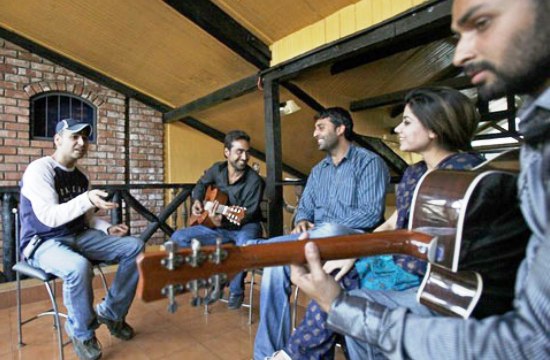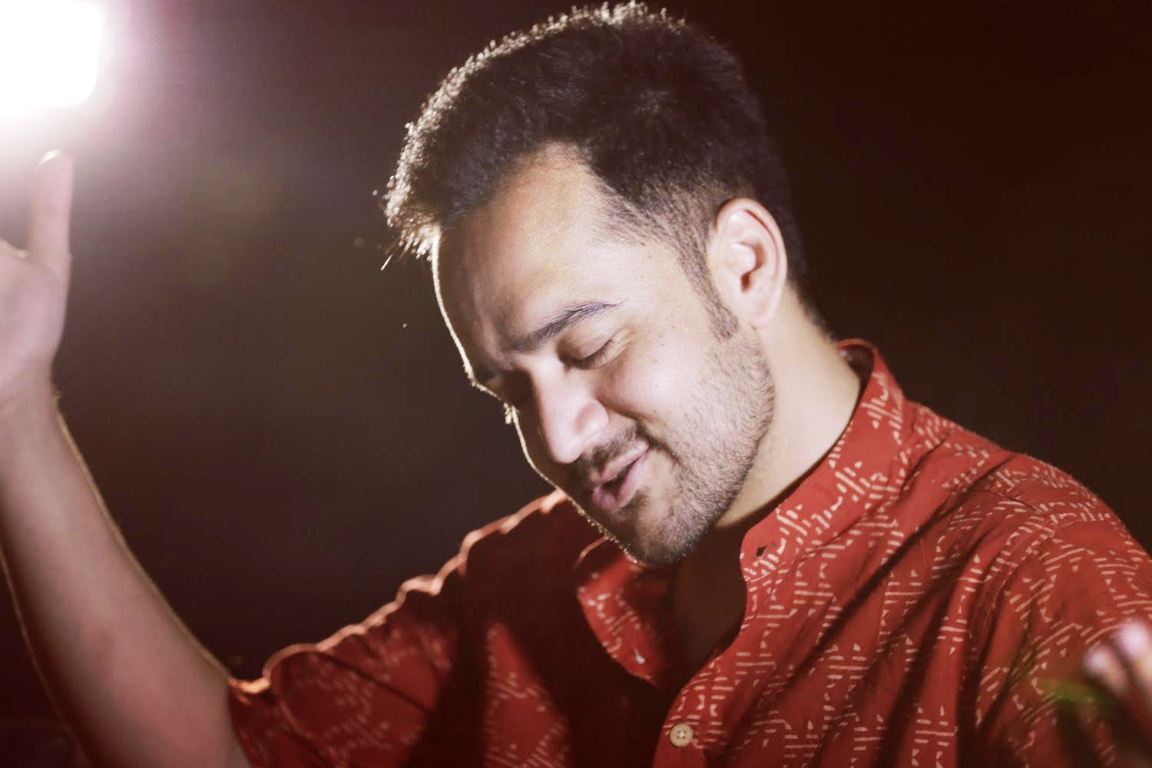(Immersion Band)
‘Immersion’ offers Kashmir some band aid
Izhar Wani (in the Kashmir Images)
SRINAGAR: As a Hindu whose grandfather was shot dead by Muslim militants, Amit Wanchoo has long had reason to quit Kashmir. Instead he’s stayed and prospered in one of the most unlikely career choices on offer in the restive region — singer in a rock band.
“Music never kills anyone, never harms anyone,” says Wanchoo, 29, whose group, Immersion, has a loyal following among young Kashmiris tired with nearly 20 years of a bloody insurgency against Indian rule.
“Through our concerts we are able to heal wounds. We are able to make people sing and smile,” Wanchoo told AFP during an interview in Kashmir’s summer capital Srinagar.
The separatist battle that broke out in Muslim-majority Kashmir in 1989 has left more than 43,000 people dead, according to official figures. It also put a long-term lid on the disputed region’s cultural life, with the separatists banning most forms of entertainment. However, since the launch of an India-Pakistan peace process in January 2004, the level of violence has ebbed somewhat and popular culture has been making a tentative comeback. Cable TV is available again, a single cinema has opened and theatre actors are back treading the boards.
And since 2004, Immersion has managed to perform 800 concerts across Kashmir — including the Hindu-majority winter capital Jammu — and even in New Delhi.
The band, which performs in English, Hindi, Urdu and Punjabi, recently released a well-received album, whose songs reflect some of the tragedy of Kashmir but also the optimism of its people.
Lines like “We will change the picture of the world, we the youngsters of Kashmir” have struck a chord and are often heard being sung in Srinagar’s streets and markets. “My aim is to make Immersion a big name,” says Wanchoo, who writes most of the five-member band’s lyrics.
Wanchoo’s family belongs to the Kashmiri Pandit (Hindu) community, and was one of the few that chose not to flee the Kashmir Valley region for Jammu during the insurgency. His grandfather used to document cases of human rights violations by Indian troops, fight unlawful detentions of suspects and help the poor, but still became a militant target and was killed in 1992.
Wanchoo admits that the murder made him “anti-Muslim” for a brief period. “I was only 13,” he says. “I used to think: why did they kill him? He never harmed them. But soon I realised that it was an insane act by an insane man, not by the entire (Muslim) community”. Muslims helped cremate his grandfather.
“I understand the suffering of both Hindus and Muslims,” says Wanchoo, who prefers to forget the past and concentrate on the future.
Wanchoo wants to develop Immersion into a sort of academy where new talent can be encouraged. The band’s albums are being sold outside Kashmir, and now a Bollywood producer is interested in making a film about the group’s emergence. “This band has surely survived. We are now making profits and also have lots of work on hand,” Wanchoo says.
Immersion performs on key anniversaries, as well as for NGOs and charities. “We even perform to entertain and help those orphaned by the ongoing unrest,” says Mehmeet Sayeed, 24 — the only woman in the group.
















